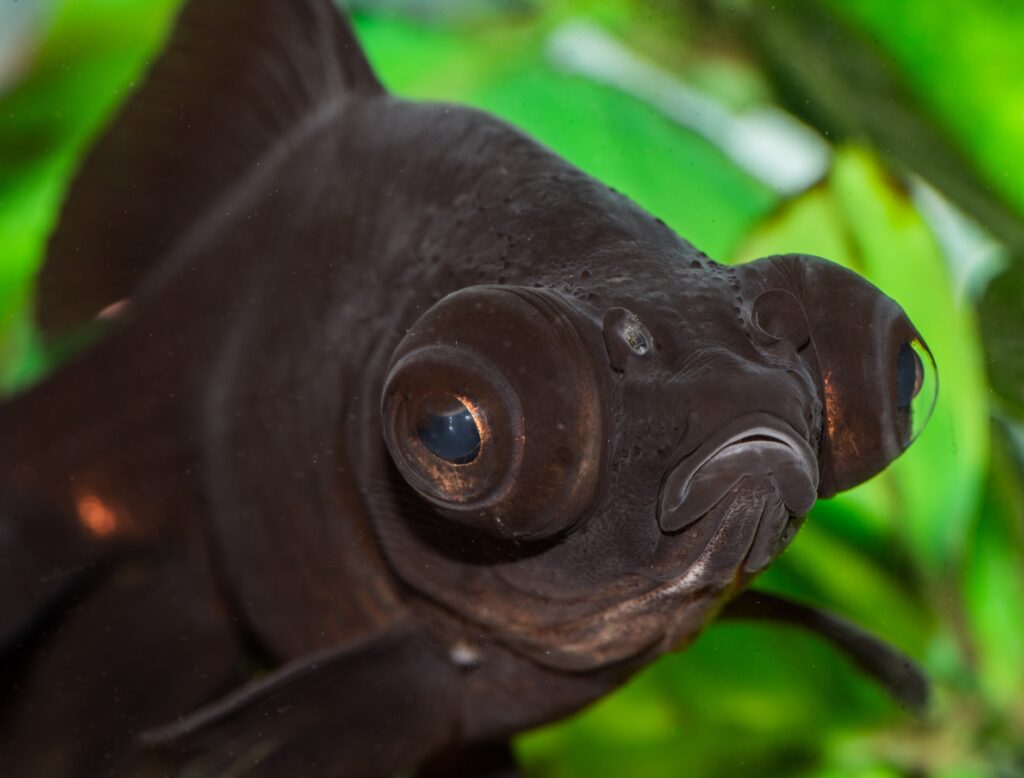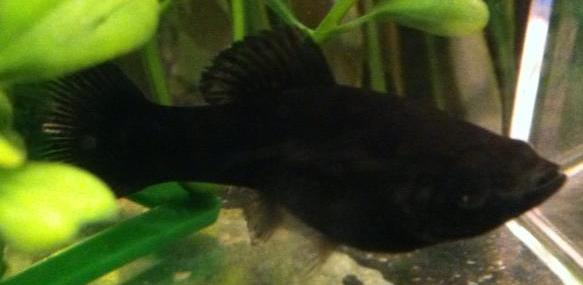Hello fish friends!
If you are looking to add a unique and striking fish to your aquarium, meet the Black Molly, a captivating species known for its dark coloration and peaceful nature.
In this article, we will explore the Black Molly’s habitat, diet, breeding habits, compatibility with other fish, and ways to keep it healthy.
Whether you’re a beginner or an experienced aquarium enthusiast, this comprehensive guide will provide you with all the necessary information to successfully care for this stunning aquatic creature.
Black Molly Habitat
In their natural habitat, black mollies prefer warm freshwater environments. These fish are known for their adaptive behavior and ability to thrive in various water conditions.
Black mollies are highly social creatures, often found in groups or schools. They exhibit a range of behaviors such as swimming in synchronized patterns and performing courtship displays. Their behavior is influenced by factors such as food availability, water temperature, and the presence of predators.
Additionally, black mollies display a wide range of color variations. While their base color is typically black, they can also have variations of silver, gold, or orange. These color variations serve as a form of camouflage and can also be influenced by environmental factors such as water quality and habitat conditions.

Black Molly Diet and Feeding
To maintain a healthy diet for your black molly, make sure to offer a variety of high-quality foods. Black mollies are omnivorous, meaning they consume both plant matter and small invertebrates. Their feeding habits can vary depending on their natural habitat and availability of food sources. In the wild, black mollies primarily feed on algae, plant matter, and small insects. However, in a home aquarium, their diet can be supplemented with commercially available fish flakes, pellets, and frozen or live foods like brine shrimp and daphnia. It is important to provide a well-balanced diet to ensure their nutritional needs are met. Here is a table highlighting some suitable food options for your black molly:
| Food Type | Examples | Benefits |
|---|---|---|
| Flakes/Pellets | Tropical fish flakes | Provides essential nutrients and vitamins |
| Frozen Foods | Brine shrimp, daphnia | Offers variety and natural food sources |
| Live Foods | Mosquito larvae, worms | Stimulates natural hunting instincts |
| Vegetables | Spinach, peas | Adds fiber and aids digestion |
| Algae | Spirulina | Provides a source of natural plant matter |
Black Molly Breeding and Reproduction
When breeding and reproducing your mollies, it’s important to provide a suitable environment and monitor the water conditions closely. Mollies are known for their vibrant colors and diverse genetic variations. Understanding black molly genetics and color variations can help you achieve desired outcomes in your breeding program. Here are some key points to consider:
- Black molly genetics play a crucial role in determining the coloration of the offspring. The presence of certain genes can result in different shades of black, ranging from jet black to a more faded grayish color.
- Color variations can also be influenced by environmental factors such as water quality, temperature, and lighting conditions. Providing optimal conditions can enhance the intensity and vibrancy of the black coloration.
- Selective breeding can be used to accentuate specific traits, including black coloration. By choosing individuals with desirable genetic characteristics, you can increase the likelihood of producing offspring with deep, rich black coloration.
- It’s important to note that genetic traits can be passed down from both parents. Understanding the genetic makeup of both the male and female mollies involved in breeding can help predict and control color variations in the offspring.
Black Molly Tankmates and Compatibility
You can ensure a peaceful and harmonious aquarium by selecting compatible tankmates for your black mollies. Black mollies are known for their peaceful nature, making them suitable for community tanks. They’re social fish and enjoy the company of other peaceful species.
When choosing tankmates, it’s important to consider their behavior and compatibility with black mollies. Avoid aggressive or fin-nipping fish that may harm the black mollies. Good tankmates for black mollies include other peaceful species like tetras, guppies, and platies.
Additionally, black mollies exhibit a range of color variations, including solid black, black with silver highlights, and black with colorful fins. These color variations can add visual interest to your aquarium, creating a stunning display of diversity.
Black Molly Health and Disease Prevention
Maintaining the health of your black mollies involves regular observation and proactive disease prevention. Black mollies are susceptible to various common diseases, so it’s important to take necessary measures to keep them healthy. Here are some key points to consider:
- Tank setup: Ensure that the tank is properly set up with appropriate water parameters, including temperature, pH level, and filtration system. This will create a suitable environment for the black mollies to thrive.
- Regular observation: Monitor your black mollies closely for any signs of illness or distress. Look out for symptoms such as fin rot, ich, or fungal infections. Early detection can prevent the spread of diseases and increase chances of successful treatment.
- Proactive disease prevention: Implement preventive measures such as regular water changes, maintaining good water quality, and providing a balanced diet. Quarantine new fish before introducing them into the tank to prevent the introduction of diseases.
Conclusion
In conclusion, the black molly is a fascinating species of fish that thrives in a variety of habitats. Their diet consists of both plant matter and small invertebrates, making them versatile eaters.
The breeding and reproduction process of black mollies is relatively straightforward, making them a popular choice among aquarists.
When it comes to tankmates, black mollies are generally compatible with other peaceful fish species.
By practicing good health and disease prevention measures, black mollies can lead long and healthy lives in aquariums.

